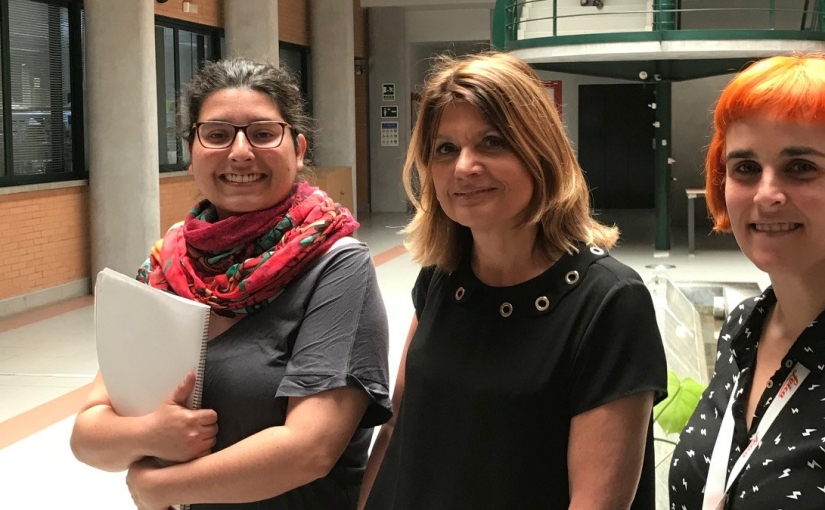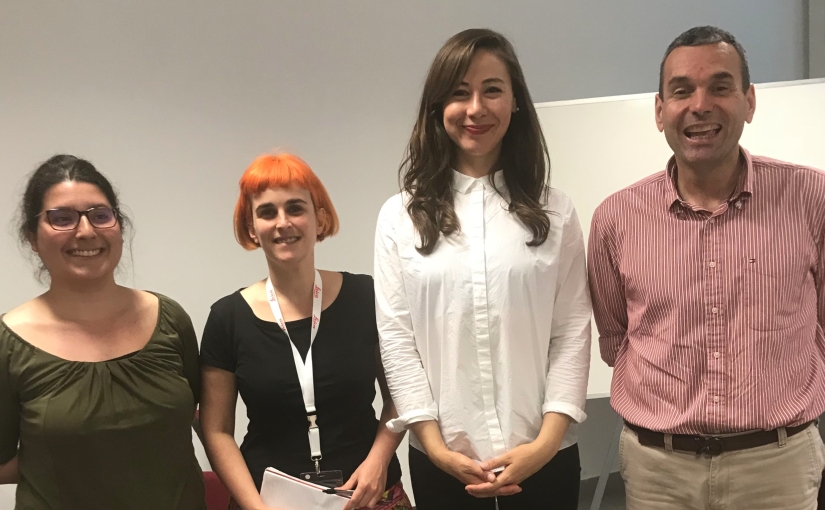Dr. Florence Ruggiero is the team leader of the Matrix Biology and Pathology group and the director of the Institut de Génomique Fonctionnelle de Lyon (IGFL). After a great talk about science we also have the opportunity to talk with her about different issues related to gender equality in her country and her own experience as woman working at such high level.
We start our conversation asking her about gender equality in her country. Dr Ruggiero tells us that in France gender discrimination is not really a problem, because most men know that taking care of children must be a shared task between parents. She confesses that children care is really difficult when children are young but the key point is to share these tasks with your partner: “If you share things with your husband he can also help you, he would like you to be a super researcher. It is really important to have this balance and also that as a couple, both should be able to have their careers because they are a team». Her advice is: “Choose a good person”. She believes that part of the problem is that «most women think that mother care is the most important thing for their children and they do not want to accept that perhaps this is not so…» She affirms to respect any personal decision but she does not like to hear “I stop working because I have children, I stop to be ambitious because I have children…”, because she thinks that having children and continuing working are not incompatible things nowadays.
We are also interested in knowing whether her institute has a gender equality committee similar to ours. Florence tells us that they do not have it but she wants to implement the idea in the institute she directs.
Talking about her career, Florence explains to us that she was encouraged by her supervisor, who was a man, to become a PI and to have her own group. She tried and got it. Then, she applied to a very competitive position in another institute, surrounded by groups specialized in developmental biology and evolution. Although she thinks that her curriculum vitae was not the best one she prepared herself as never before and got it. Based on her own experience she thinks that, in part, the low representation of women in this kind of selection processes is an educational problem related to the little self-confidence that women, in general, have. She says that women tend to be not as direct, strong or clear as men when they are fighting for a position and that is something that can tip the scale to men side.
Before she got the position at IGFL, in the Institute there were 12 groups leaded by men so she was the only female group leader for a while. She says that although she has never felt gender discrimination, she was witness of the poor self-confidence of some female candidates. Her institute encouraged female application by notifying this point specifically in the text of the call for new group leaders but they received only few applications from women. Regarding this life lesson Florence tells us: “Female can help female by not saying we are victims». But this is changing. Last year, Florence strongly supported as the Director of the IGFL the application of a young, talented woman. She got the position and few months later she got three very competitive grants (among them a French Starting Grant and an ERC Starting Grant), she got a permanent position and then she had a baby as well.
She insists that the main problem for women in science is to be confident and she encourages us to always try and to learn from the feedback when we fail. She thinks that the way women behave is consequence of our education, because the society and mass media say to you, sometimes not obviously, that female and male are different.
Florence’s take home message is that women need to be confident: »just try it and do not hesitate».
Image. Left to right: Marta S. Magri (CABD Gender Equality Committee), Dr. Florence Ruggiero and Dr. Isabel Almudí (CABD Gender Equality Committee).


